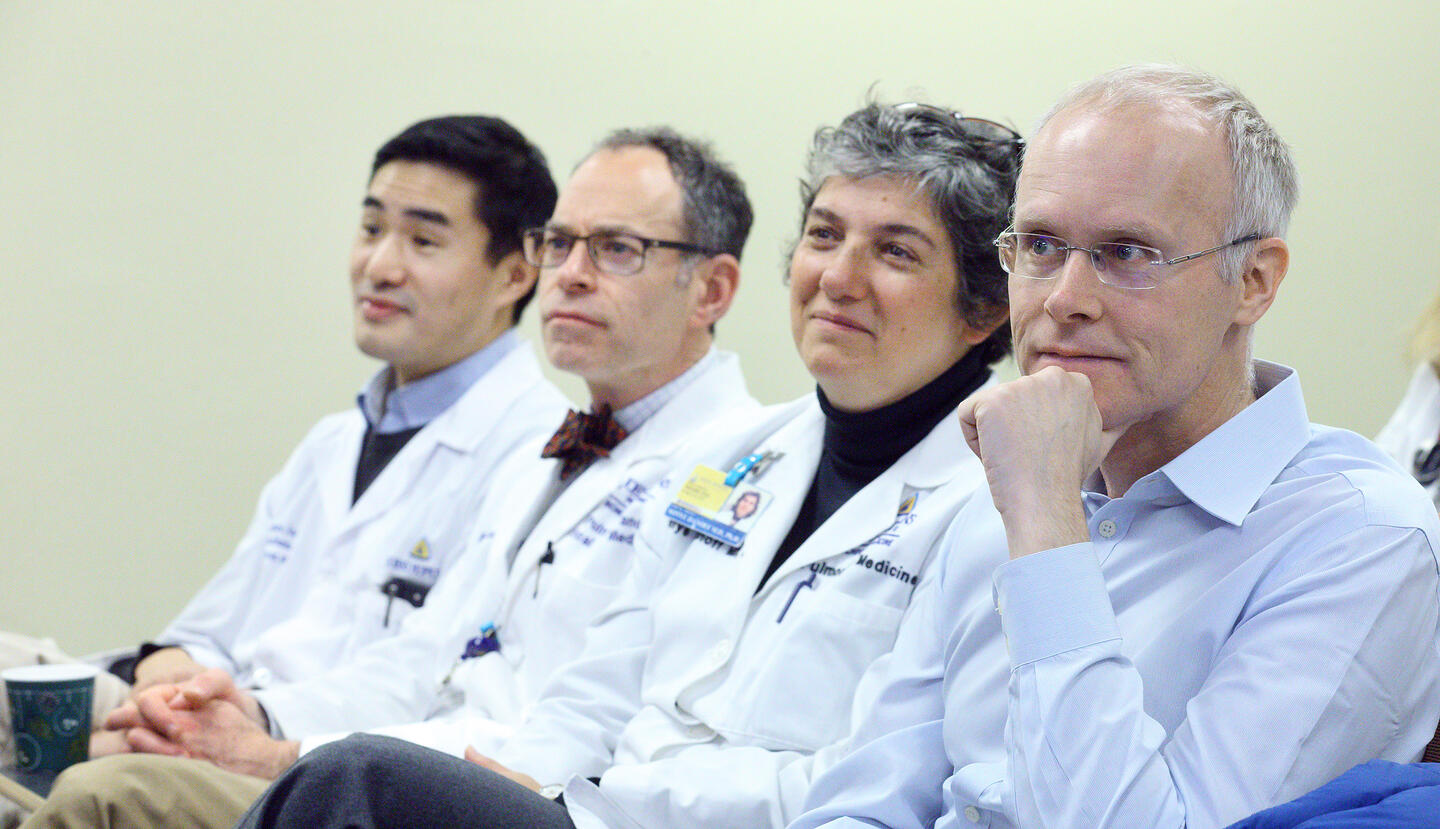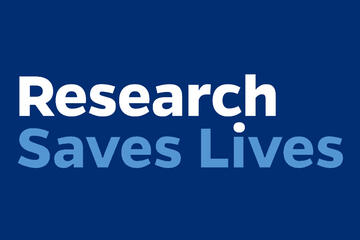Cutting-edge treatments offer new hope for those living with cystic fibrosis | Hub
By
Published
May 19, 2025
Cystic fibrosis is a genetic disorder that affects roughly 40,000 Americans. The condition is caused by a mutation in the patient's cystic fibrosis transmembrane conductance regulator (CFTR) gene, which throws off the balance of salt and fluids inside and outside the body's cells. As a result, a patient's mucus, digestive juices, and other bodily fluids become thick and sticky, damaging their organs. The progressive impact on a patient's lungs eventually proves fatal.
But according to Johns Hopkins pulmonary care experts Noah Lechtzin and Peter Mogayzel, decades of clinical trials have drastically improved both the life expectancy and quality of life of those with cystic fibrosis, or CF.
"CF has been an amazing success story," says Lechtzin, who serves as director for the Johns Hopkins Adult Cystic Fibrosis Program. "I saw patients with CF when I was doing pediatrics as a med student, but there were really no adult providers to speak of because patients didn't live beyond childhood. ... Over the years, things have completely shifted to the point where now patients are living much, much longer. There's now more adults with CF than there are pediatric patients."
"[Cystic fibrosis] has been an amazing success story. ... Over the years, things have completely shifted to the point where now patients are living much, much longer."
Noah Lechtzin
Director, Johns Hopkins Adult Cystic Fibrosis Program
On Tuesday, the Johns Hopkins Medicine Office of Clinical Trials and the Johns Hopkins Institute for Clinical and Translational Research will celebrate Clinical Trials Day, highlighting the pivotal role of clinical trials in advancing medical research and treatment, for cystic fibrosis and countless other conditions and diseases. Clinical Trials Day is an opportunity to recognize the contributions of the clinician investigators, clinical research staff members, and patient participants who make this work possible.
As of this month, there are nearly 23,000 clinical trials recruiting patients across the United States, with Johns Hopkins actively seeking volunteers for more than 1,000. These trials test a wide array of new drugs, vaccines, and medical devices, offering renewed hope to those suffering from disease.
Hopkins is currently participating in 19 trials related to cystic fibrosis, a disorder that was first identified in 1938 by Johns Hopkins Medical School alum Dorothy Anderson. At the time, the diagnosis came with a life expectancy of two years. Now, less than a century later, the average patient lives to age 61.
As the only cystic fibrosis center in Maryland, Johns Hopkins Hospital supports approximately 400 adults and 200 children with the disease. In addition to providing care and training the next generation of cystic fibrosis specialists, the hospital has participated in hundreds of relevant clinical trials.
"The clinical trials are vital," says Mogayzel, who has served as the director of the Johns Hopkins Cystic Fibrosis Center since 2002. "I mean, this is the only way cystic fibrosis is going to be cured."
Medical treatments must be tested in clinical trials before being approved for public use by the FDA. In addition to determining effectiveness and safety, these trials offer crucial insight into how the treatment should be implemented, such as how results vary among different populations.
As one of the seven founding members of the Cystic Fibrosis Foundation's Therapeutics Development Network, the Johns Hopkins Hospital is regularly approached to take part in multi-center trials.

Image caption: Noah Lechtzin (second from left) is pictured with other members of the Johns Hopkins pulmonary and critical care medicine team.
Some of these trials are simply observational, with participants filling out questionnaires and taking the occasional blood test. Others require more intense involvement. Testing for brand new therapies often requires inpatient stays, while drugs that are further along in development ask for long-term commitments. Funding for these trials comes primarily from pharmaceutical companies, though Hopkins also receives notable contributions from nonprofit foundations, the National Institutes of Health, and the FDA.
According to Lechtzin, the most dramatic transformation of the past 15 years happened during clinical trials for the CFTR modulator 'Trikafta.' CFTR modulators help correct the malfunctioning proteins made by the mutated CFTR gene, decreasing the amount of mucus and fluid in a patient's organs.
"It was like nothing I've ever seen," recalls Lechtzin. "[Patients] would come in and say, 'I've coughed throughout the day my entire life and all of a sudden I'm not coughing. Now I understand what it feels like to breathe normally.'"
More coverage
The impact of funding cuts
Without research—and the federal support that makes it possible—scientific breakthroughs suffer, and the lifesaving treatments of tomorrow are at risk.
But despite decades of life-changing breakthroughs, treatment for cystic fibrosis still has a long way to go. CFTR modulators only work for those with specific mutations. For the remaining 10% to 15% of cystic fibrosis patients, the drugs are either ineffective or cause serious side effects.
Mogayzel believes that, in order to truly cure cystic fibrosis, doctors must turn to genetic therapy. The gene that causes cystic fibrosis was identified in 1989. Permanently correcting this gene will require advancements in genetic science. It will also require more clinical trials.
"A cure is getting people a CFTR gene that works, either by replacing the gene that's there with a new one or fixing the gene," he says. "That's still a number of years off, but unless people participate, there's no way to get there."














